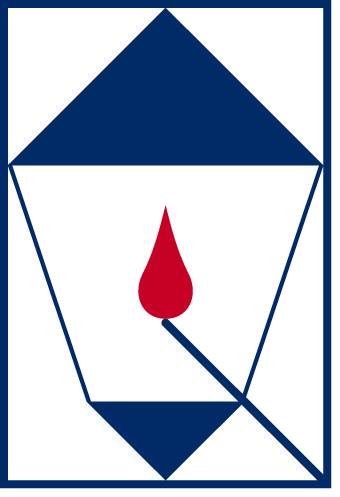米国留学情報 F-1, M-1ビザ ~オンライン授業に注意~
- 篠原竜一 代表取締役社長

- 2020年7月7日
- 読了時間: 6分
この秋からの米国留学に係るビザ手続きは複雑だ。
COVID-19を受け、The Student and Exchange Visitor Program(SEVP)は、春と夏の学期のオンラインコースに関する一時的な免除を制定、このポリシーにより、非移民の学生は、COVID-19の緊急時に非移民のステータスを維持するために連邦規制で通常許可されているよりも多くのオンラインコースを受講することが出来ていた。
U.S. Immigration Customs Enforcement (ICE)は、2020年秋学期に向けて、The Student and Exchange Visitor Program(SEVP)が定めたこの一時的な免除の変更を7/6に公表した。
The U.S. Department of State(米国国務省)は、2020年秋学期の全てをオンラインで行う学校に通う学生にはビザを発給しない方針を決めた。対象はボーディングスクール、大学や語学学校などに留学するF―1ビザと、美容学校やパイロット学校など職業訓練プログラムを受講するM―1ビザ。
米国の大学、ボーディングスクールでは、2020年秋学期の授業をどのように行うかは学校によって様々だ。大きく3つに分類することが出来る。対面授業を行う学校、対面授業とオンライン授業を組み合わせて行う学校、そして100%オンライン授業を行う学校だ。
100%オンライン授業で秋学期を行う学校に通う目的で米国に入国、滞在することはF-1, M-1ビザを既に持っていても出来ない。ハーバード大学は、秋学期から一部学生のキャンパス滞在を認めるものの、授業はすべてオンラインで実施すると発表したが、留学生にはビザが発給されないことになるので、キャンパス滞在は叶わない。また、既に米国で活動している学生で、2020年秋学期の全てをオンラインで行う学校に通うことが決まっている学生は、米国を出国する必要がある。対面授業を行う学校に転校するなどの対応を取らない限り、国外退去処分になる場合もある。
通常の対面授業で運営されている学校に通う非移民F-1学生は、既存の連邦規制に拘束される。対象となるFビザの学生は、最大で1クラスまたは3クレジットをオンラインで受講できる。
オンラインクラスと対面授業を組み合わせて行う学校に通う非移民F-1学生は、オンラインで複数のクラスまたは3クレジット以上をとることができる。しかしながら、届け出が必要だ。これらの学校は、プログラムが完全にオンラインではないこと、学生が秋学期に100%オンラインで行われるコースを受講していないこと、および学生が、学位取得の為に必要な最小限のオンラインクラスを受講することを、フォームI-20「非移民学生ステータスの資格証明書」を通じてSEVPに届け出る必要がある。
尚、上述の免除は、オンラインコースへの登録が許可されていない英語トレーニングプログラムのF-1学生または職業学位を取得するM-1学生には適用されない。
秋学期に対面授業で開始したが、後になってオンラインクラスのみに切り替えられた場合、または非移民の学生が自分でオンラインクラスへ変更した場合などで、100%オンラインのコースを受けることになった場合、学校は変更後10日以内に学生および交換訪問者情報システム(SEVIS)の情報を更新する必要がある。学生がこの状況に陥った場合は、非移民のステータスが維持できなければ、米国を離れる必要がある。
ICEによるプレスリリース原文は、以下の通り。
SEVP modifies temporary exemptions for nonimmigrant students taking online courses during fall 2020 semester
WASHINGTON – The Student and Exchange Visitor Program (SEVP) announced modifications Monday to temporary exemptions for nonimmigrant students taking online classes due to the pandemic for the fall 2020 semester. The U.S. Department of Homeland Security plans to publish the procedures and responsibilities in the Federal Register as a Temporary Final Rule.
Temporary exemptions for the fall 2020 semester include:
1. Nonimmigrant F-1 and M-1 students attending schools operating entirely online may not take a full online course load and remain in the United States. The U.S. Department of State will not issue visas to students enrolled in schools and/or programs that are fully online for the fall semester nor will U.S. Customs and Border Protection permit these students to enter the United States. Active students currently in the United States enrolled in such programs must depart the country or take other measures, such as transferring to a school with in-person instruction to remain in lawful status. If not, they may face immigration consequences including, but not limited to, the initiation of removal proceedings.
2. Nonimmigrant F-1 students attending schools operating under normal in-person classes are bound by existing federal regulations. Eligible F students may take a maximum of one class or three credit hours online.
3. Nonimmigrant F-1 students attending schools adopting a hybrid model—that is, a mixture of online and in person classes—will be allowed to take more than one class or three credit hours online. These schools must certify to SEVP, through the Form I-20, “Certificate of Eligibility for Nonimmigrant Student Status,” certifying that the program is not entirely online, that the student is not taking an entirely online course load this semester, and that the student is taking the minimum number of online classes required to make normal progress in their degree program. The above exemptions do not apply to F-1 students in English language training programs or M-1 students pursing vocational degrees, who are not permitted to enroll in any online courses.
Schools should update their information in the Student and Exchange Visitor Information System (SEVIS) within 10 days of the change if they begin the fall semester with in-person classes but are later required to switch to only online classes, or a nonimmigrant student changes their course selections, and as a result, ends up taking an entirely online course load. Nonimmigrant students within the United States are not permitted to take a full course of study through online classes. If students find themselves in this situation, they must leave the country or take alternative steps to maintain their nonimmigrant status such as a reduced course load or appropriate medical leave.
Due to COVID-19, SEVP instituted a temporary exemption regarding online courses for the spring and summer semesters. This policy permitted nonimmigrant students to take more online courses than normally permitted by federal regulation to maintain their nonimmigrant status during the COVID-19 emergency.
F-1 nonimmigrant students pursue academic coursework and M-1 nonimmigrant students pursue vocational coursework while studying in the United States.
Last Reviewed/Updated: 07/06/2020
株式会社ランプライターコンサルティングは、当サイトに掲載している情報の正確性について万全を期しておりますが、その内容について保証するものではありません。当サイトでは、信頼できる情報源から得た情報を、確実に掲載するようあらゆる努力をしておりますが、株式会社ランプライターコンサルティングは、間違い、情報の欠落、あるいは、掲載されている情報の使用に起因して生じる結果に対して一切の責任を負わないものとします。当サイトに掲載されている全ての情報は、その時点の情報が掲載されており、完全性、正確性、時間の経過、あるいは、情報の使用に起因して生じる結果について一切の責任を負わないものとします。また、あらゆる種類の保証、それが明示されているか示唆されているかにかかわらず、また業務遂行、商品性、あるいは特定の目的への適合性への保証、また、これらに限定されない保証も含め、いかなることも保証するものではありません。




Great article! Very informative for anyone looking into F-1/M-1 visas. Also for those considering studying overseas, don’t overlook the importance of student accommodation in Oxford it can really make the study-abroad experience smoother and more comfortable.